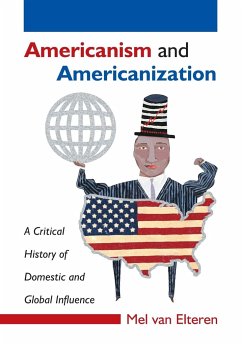With the current state of foreign affairs, the terms "Americanism" and "Americanization" sometimes take on an unexpected--and an unflattering--connotation. Americanism essentially involves values, beliefs, ideals, goods and practices in local settings outside the United States that are in some way related or attributed to American influence. While the validity of this influence may be under scrutiny, it requires a detailed historical--and sometimes cultural--analysis to understand all the dynamics and implications of Americanization. A variety of factors contributes to this influence, including the preoccupation and reception of the relevant culture itself. For instance, many European countries have at times demonstrated a preoccupation with all things American which was not necessarily swayed by any action of America itself. The overall actualization of Americanization, however, encompasses a number of societal dimensions, including power differentials in the exchange processes concerned. Informed by a history of relevant developments since the early nineteenth century, this volume presents an in-depth critical analysis of the Americanization process. Beginning with a survey of early European preoccupations with things American, the book goes on to discuss European concerns regarding American influence after World War II. The work then looks at Americanism and its influence within the United States itself, especially regarding developments during the New Deal and beyond. The primary goal of the analysis is the construction of an interpretative framework, allowing for a more balanced approach to the study of Americanism abroad. Written from a critical, social-emancipatory perspective, the author's approach blends economic, military, social, political, cultural and psychological dimensions as well as an examination of the ways in which these areas interact. Finally, Americanism is examined as part of a U.S.-style corporate globalization at the current juncture. Instructors considering this book for use in a course may request an examination copy here.
Hinweis: Dieser Artikel kann nur an eine deutsche Lieferadresse ausgeliefert werden.
Hinweis: Dieser Artikel kann nur an eine deutsche Lieferadresse ausgeliefert werden.








